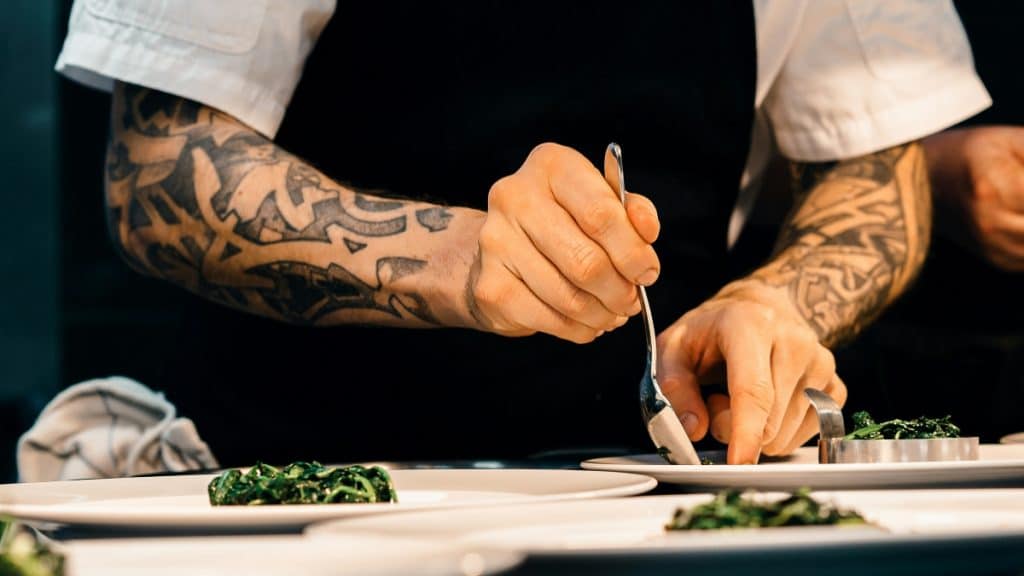A chef is not merely a cook but a master of culinary arts, responsible for overseeing all aspects of food preparation, presentation, and kitchen management. Whether working in a restaurant, hotel, or catering company, chefs play a central role in creating memorable dining experiences and delighting customers with their culinary creations.
Beyond cooking, chefs are leaders who inspire and mentor kitchen staff, maintain high standards of food quality and safety, and drive innovation in menu development.
Culinary creativity and menu development
At the heart of the chef’s role is culinary creativity and menu development. Chefs draw upon their expertise, palate, and knowledge of global cuisines to design menus that showcase their culinary vision and cater to the preferences of their target audience. This involves conceptualizing dishes, experimenting with flavors and ingredients, and balancing taste, texture, and presentation to create a harmonious dining experience.
From crafting seasonal specials to designing tasting menus for special occasions, chefs have the creative freedom to express their culinary prowess and push the boundaries of gastronomy. Successful chefs stay abreast of food trends, sourcing sustainable and locally sourced ingredients whenever possible, and adapting their menus to reflect changing consumer preferences and dietary restrictions.
Kitchen leadership and team management
In addition to their culinary skills, chefs must possess strong leadership and team management abilities to effectively run a kitchen. As the head of the culinary team, chefs are responsible for hiring, training, and supervising kitchen staff, ensuring that each member performs their duties efficiently and upholds the highest standards of food quality and safety.
Effective communication and delegation are essential traits for chefs, as they must coordinate with sous chefs, line cooks, and other kitchen staff to execute dishes seamlessly and maintain smooth kitchen operations. By fostering a positive and collaborative work environment, chefs can inspire their team to excel and deliver exceptional dining experiences to guests.
Quality control and food safety
Maintaining quality control and ensuring food safety are paramount responsibilities of chefs in any culinary establishment. Chefs are responsible for inspecting incoming ingredients, monitoring food storage and handling practices, and adhering to strict hygiene standards to prevent foodborne illnesses and ensure the safety of diners.
From temperature control to proper cooking techniques, chefs must oversee every step of the food preparation process to guarantee that dishes are prepared to perfection and meet the highest standards of quality and freshness. In addition, chefs must stay informed about food safety regulations and industry best practices to mitigate risks and uphold the reputation of their establishment.
Cost management and budgeting
Beyond the culinary aspect, chefs are also tasked with managing kitchen finances and controlling costs to ensure profitability for the business. This involves developing cost-effective menus, optimizing ingredient usage, and minimizing waste to maximize profitability without compromising on food quality or customer satisfaction.
Chefs must have a keen understanding of food costs, portion control, and inventory management to effectively manage kitchen budgets and achieve financial targets. By implementing efficient kitchen processes, negotiating with suppliers, and analyzing sales data, chefs can identify opportunities to reduce expenses and increase profit margins, contributing to the overall success of the culinary operation.
Customer interaction and satisfaction
As the face of the kitchen, chefs often interact directly with diners, whether through open kitchen concepts, chef’s tables, or special events. Chefs have the opportunity to engage with guests, answer questions about the menu, and receive feedback on their culinary creations, providing a personalized dining experience that enhances customer satisfaction and loyalty.
Chefs who excel in customer interaction possess excellent communication skills, a passion for hospitality, and a genuine desire to exceed guest expectations. By listening attentively to guest feedback, addressing concerns promptly, and incorporating customer preferences into menu planning, chefs can create memorable dining experiences that keep guests coming back for more.
Continuous learning and professional development
In the dynamic world of culinary arts, lifelong learning, and professional development are essential for chefs to stay at the top of their game. Whether attending culinary workshops, participating in cooking competitions, or seeking mentorship from seasoned chefs, continuous learning enables chefs to expand their repertoire, refine their skills, and stay inspired in their craft.
From mastering new cooking techniques to exploring global cuisines, chefs who embrace lifelong learning are better equipped to adapt to changing culinary trends and push the boundaries of their creativity. By investing in their professional development, chefs can elevate their culinary careers and leave a lasting legacy in the world of gastronomy.
Conclusion
The job description for a chef encompasses much more than cooking. From culinary creativity and menu development to kitchen leadership, quality control, cost management, customer interaction, and continuous learning, chefs wear many hats and play a pivotal role in shaping the dining experience. By mastering these key responsibilities, chefs can unlock their full potential and achieve culinary excellence in the competitive world of hospitality.
